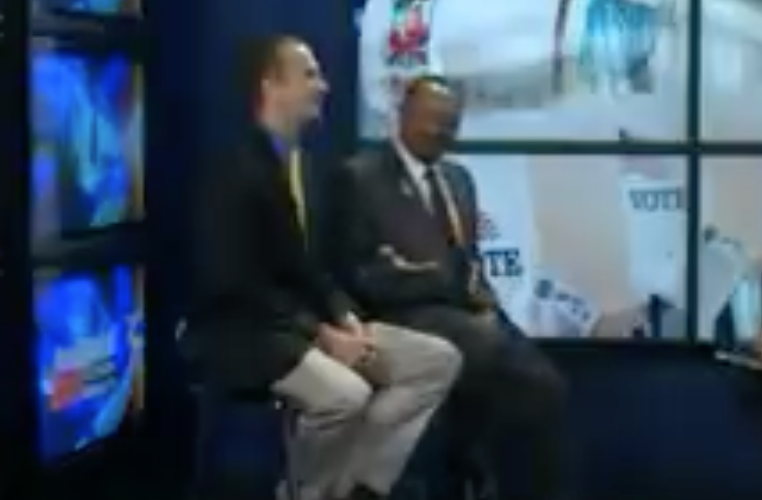As the political soap opera in Virginia rolls on and on and on, I think it’s important to pause and remind journalists where all of this started — with an argument about religion, science and philosophy.
I am referring, of course, to Gov. Ralph Northam’s comments about the proposed Virginia legislation that included controversial language about late-term abortions.
In this firestorm about race — a totally valid story, of course — it has been easy to forget the role that abortion played in this equation.
I say this because of a story that ran the other day at The Washington Post that, in my opinion, should have received more attention. Here’s the bland headline from that: “A tip from a ‘concerned citizen’ helps a reporter land the scoop of a lifetime about Northam.” Let’s walk through this, starting with the overture:
The reporter who exposed the racist photo on Gov. Ralph Northam’s yearbook page said a “concerned citizen” led him to the story that has prompted widespread outrage and calls for the Democrat’s resignation.
Patrick Howley, editor in chief of the website Big League Politics, first reported … the existence of a photo on Northam’s page of his medical school yearbook depicting a figure in blackface standing next to another person in a Ku Klux Klan hood.
“It’s very easy to explain,” Howley, 29, said in an interview. …. “A concerned citizen, not a political opponent, came to us and pointed this out. I was very offended [by the photo] because I don’t like racism.”
Ah, but why was the “concerned citizen” acting? Isn’t that the big idea here, perhaps worthy of mentioning in the lede and the headline?
The Big League Politics editor, naturally, wanted to talk about politics. However, to its credit, the Post team dug deeper and hit this:
The source of the tip appears to have been a medical school classmate or classmates of Northam who acted as a direct result of the abortion controversy that erupted earlier in the week, according to two people at Big League Politics, who spoke on the condition of anonymity because they were not authorized to discuss the matter publicly.
“The revelations about Ralph Northam’s racist past were absolutely driven by his medical school classmate’s anger over his recent very public support for infanticide,” one of the two said.
Now, why was the “concerned citizen” so angry about the abortion debate, going so far as to use the “infanticide” language of Northam’s critics?
There are, of course, plenty of secular people who oppose late-term, third-trimester abortions for reasons that have nothing to do with religious faith, doctrine and tradition. I would assume that the same is true with this new, jolting issue that was being debated — termination after a failed abortion or other circumstances after viability in which doctors are dealing with a child who has a chance of survival. (Sen. Ben Sasse of Nebraska has called this “fourth-trimester abortion.”)
However, the odds are good that religious convictions had something to do with the actions of this “concerned citizen.”
Alas, that angle instantly vanishes in the Post report. An Associated Press timeline feature on this train wreck avoided the abortion-anger angle altogether. In the CBS clip at the top of this post, you can watch Howley maneuver, once again, around this potential religion hook.
As a reminder, here is what Northam had said earlier on the WTOP radio “Ask the Governor” show. The proposed Virginia bill (which was tabled on a 5-3 vote in committee) would allow termination in cases where an unborn child is “not viable” outside the womb, he said.
“In this particular example, if a mother’s in labor, I can tell you exactly what would happen. The infant would be delivered, the infant would be kept comfortable, the infant would be resuscitated if that’s what the mother and the family desired. And then a discussion would ensue between the physicians and the mother.”
Now, there is one other angle in the Washington Post piece that is worth considering, in terms of the potential religion “ghosts” (to use a familiar GetReligion term) in this Northam controversy. I am referring to the passage, later on, in which Howley states:
“I know [Northam] is a racist,” he said at one point. “This guy is a racist.” He cited only one instance to back up that assertion: a 2013 TV interview in which Northam declined to shake hands with E.W. Jackson, an African American who was running against him for lieutenant governor.
A brief recording of the encounter shows Northam looking at the interviewer as Jackson extends his hand. It’s not clear from the clip whether Northam saw Jackson’s attempt to shake hands. Northam defeated Jackson in the general election that year.It is possible, of course, that Northam avoided shaking the hand of a pro-life, conservative Christian, African-American because of this Republican’s race.
However, I think it is much more likely that he declined to shake Jackson’s hand because of this candidate’s outspoken stands on religious, moral and cultural issues such as, yes, abortion, as well as the definition of marriage and gay rights.
After all, as Jackson said, in a 2013 Post report:
“I say the things that I say because I’m a Christian, not because I hate anybody, but because I have religious values that matter to me,” Jackson told reporters at a campaign stop in Fredericksburg. “Attacking me because I hold to those principles is attacking every church-going person, every family that’s living a traditional family life, everybody who believes that we all deserve the right to live. So I don’t have anything to rephrase or apologize for. I would just say people should not paint me as one-dimensional.”
My question is one that will be quite familiar for GetReligion readers: Why avoid the religion angles in this important national story? Why focus on race and politics, period?
FIRST IMAGE: Screen grab from the 2013 debate between Ralph Northam and E.W. Jackson.











